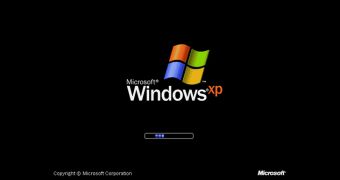Microsoft will stop providing support for Windows XP in April 2014, so users around the world are encouraged to dump the 11-year-old operating system for a newer Windows version, be it Windows 7 or Windows 8.
But according to Camwood, a UK-based enterprise migration company, only a few users are actually willing to abandon Windows XP. And when it comes to businesses, approximately 20 percent of them have expressed their intention to make the switch to a newer Windows version.
“Among our own client base, only around 15-20% of businesses are looking at migration so far,” Ed Shepley, a solution architect at Camwood, was quoted as saying by InformationWeek.
“For some the issue hasn't hit home yet. Others think they still have time, but 2014 will come round all too quickly and they shouldn't underestimate all that's involved.”
And statistics indicate that Windows XP indeed remains the top choice for many users these days.
Figures provided by Net Applications for the week of January 6 reveal that Windows XP is currently the second most popular OS out there with a market share of 39.08 percent, while Windows 7 retains its leading spot with 45.15 percent.
But Microsoft continues to recommend users to switch from Windows XP to 7 or 8 with every single occasion, trying to emphasize that sticking to such an old software is very risky.
“This could affect your internal network security and regulatory compliance and potentially expose secure employee and organisational information. That’s why we recommend that your school, college or university updates its operating system,” the company said back in October.
The software giant has also asked partners to support the transition to newer Windows versions as these upgrades represent a huge opportunity for those who get involved in the program.
“There is no lower hanging fruit than Windows XP [upgrades],” Long Tran, Microsoft's director of technology strategy solutions for SMB, said in November.

 14 DAY TRIAL //
14 DAY TRIAL //